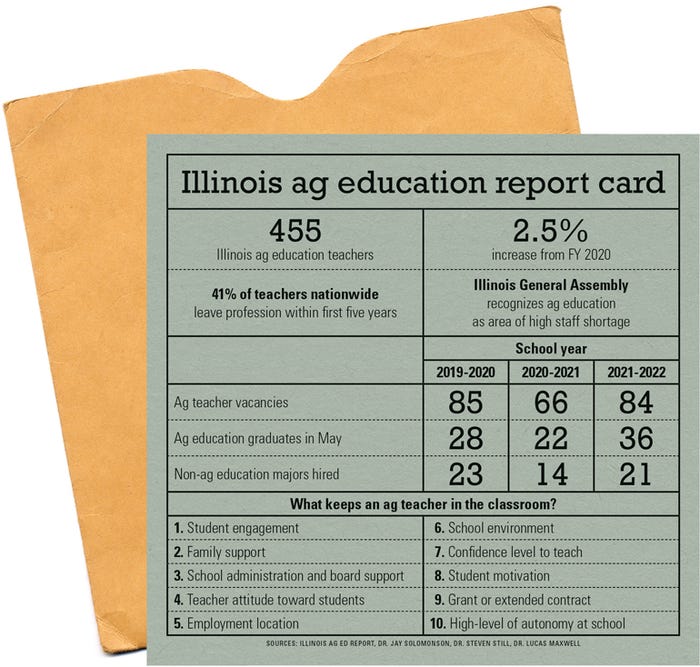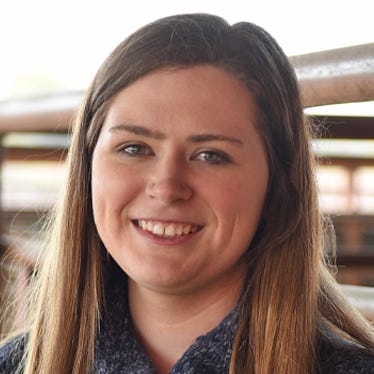
Most Illinois school districts have an agriculture education program, but does each program have the full potential to increase student involvement and achievement? The problem is, it’s tough to expand these programs when there are barely enough teachers for existing positions.
No surprise, there’s a shortage of Illinois ag educators, says Jay Solomonson, ag education assistant professor at Illinois State University. In fact, the 2021 Illinois Agriculture, Food and Natural Resources Education Report revealed that for the 2021-22 school year, there were 84 ag education openings, 36 ag education graduates and 21 non-traditionally licensed teachers hired in ag education.
“Research shows almost half of teachers leave within the first five years,” Solomonson says. He and other researchers have studied why ag educators stay in the profession. These factors include school support, extended contract and confidence in their teaching abilities.
But new teachers aren’t the only ones at risk.
“I’m actually more concerned about our midcareer teachers,” Solomonson says. These teachers have established and grown their own programs but are now also marrying and starting families.
And with a change in ag teacher demographic, the concern is valid.
“The demographics of the ag teacher in the last 20 years has changed dramatically,” he says. “This past year, we’ve had more females than males in the profession, which is a huge swing.”
Support ag teachers
What’s all this mean for school districts, parents and FFA alumni?
“It comes down to providing support for the teachers, and I think it’s different for every teacher and what type of support they need,” Solomonson says. “We’ve found that teachers feel like they’re OK in the classroom, but it’s the 10 to 20 hours beyond their normal contract time where they need help.”
He recommends ag program supporters volunteer to chaperone events or train contest teams to alleviate the workload on ag educators trying to grow and expand their ag programs.

Financial support helps too.
Ag teachers need and want a new grant known as the Three Circles Grant as a part of their salary, Solomonson says. That grant, funded by the Illinois State Board of Education budget, pays for 50% of 400 hours completed outside of an ag teacher’s assigned school hours. The school district pays the rest. With this grant, the average ag teacher’s contract length is increased to 12 months.
“If a teacher gets burnt out and leaves the profession, that doesn’t help anybody,” Solomonson says. “If we can provide the support that teacher needs, we’re more likely to keep them in the profession.”
About the Author(s)
You May Also Like






